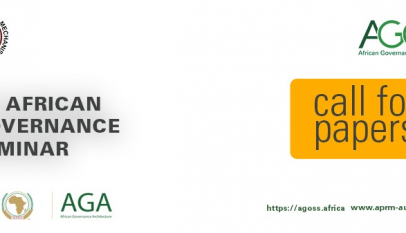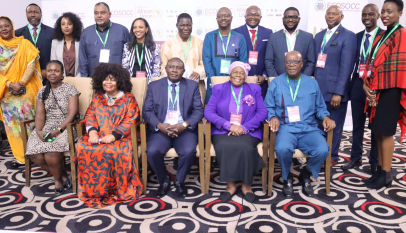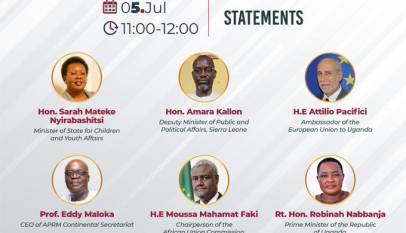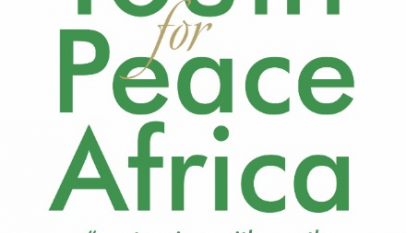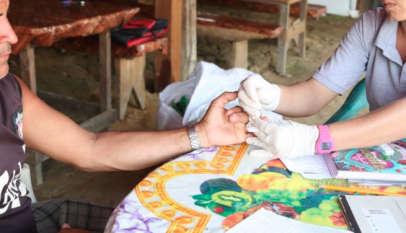INDEPTH | Africa’s young people: A treasure or time-bomb?
With a projected young population of almost 1 billion by 2050, to effectively harness this potentially huge treasure or rather avert an already looming catastrophe, Africa must evolve an all-inclusive three-pronged strategy for achieving political, economic and social inclusion

Beginning from the late 20th century, Africa has often times been touted as the continent of the future hence the popularization of concepts such as Africa Rising and African Renaissance – all of which point to a new sense of optimism about Africa’s future, one characterized by social cohesion, peace and stability, participatory democracy, good governance, and rapid economic growth. This view is against the hitherto gloomy view the world had about the continent’s future, one marred by conflicts, mis-governance, human rights violation and poverty.
No doubt, many African countries have beginning from the 1990s enjoyed quite stable democracies, alongside rapid economic growth. As at 2019, African countries such as Libya, Ethiopia, Rwanda and Ghana are some of the fastest growing economies of the world, according to The International Monetary Fund (IMF). However, this economic growth often measured in Gross Domestic Product (GDP) terms has not always translated to improved quality of life for the poor, particularly the African youths who have continued to endure political, economic and social exclusion.
An ever-growing youthful population
Africa is said to have the fastest-growing and most youthful population in the world. In specific terms, 65% of the continent’s 1.2 billion people are said to be below the age of 35 and nearly 50% of them are under the age of 19, according to the UN. The continent’s youthful population is forecasted to continue to grow throughout the remainder of the 21st century, more than doubling from current levels by 2055. As the population of Africa is projected to double by 2050 to around 2.4 billion, the population of under-18s is estimated to rise to almost a billion by 2050, says the UN.
For Africa, if effectively harnessed, this demographic development portends a huge opportunity for not only economic growth and innovation but also political and social inclusion. However, if failed to be positively exploited, this demographic growth could also lead to grave political, economic and social challenges including serious implications for peace and security on the continent. Now, the question among pundits and scholars remains: Is Africa prepared to tap into this huge opportunity for growth?
“But as Africa’s youthful population continues to rise, there is uncertainty over the continent’s preparedness to tap this resource for economic growth. Even as the continent struggles to provide opportunities for its current population, the question remains whether Africa is prepared to match the attendant social, political and economic challenges that will come when the population doubles by 2050,” noted Richard Kweitsu writing in 2017 as a Mo Ibrahim Scholar at the University of Birmingham, UK.
Kweisu argued that all over Africa, there was “widespread frustration and agitation by and among young people over limited economic opportunities, growing corruption, rising unemployment, and limited opportunities for political participation. This growing frustration is increasingly manifested in migration of young people from the continent and the global appeal of terrorism and violent extremism and the alarmingly high number of young people being recruited into these extremism groups.”
A peek into Africa’s closed political space
Across Africa, the political and democratic governance space is dominated by aged people with very limited space allowed youths to participate in democratic governance processes. This is clearly against the provisions of Article 31(1) and 31(2) of the African Charter on Democracy, Elections and Governance (ACDEG) – the main normative framework of the AU setting the standards for better governance on the continent – which enjoins State Parties to the Charter to promote participation of social groups with special needs in governance processes, including youths and People with Disabilities (PWDs).
Moreover, Article 11(2) of the African Youth Charter (AYC) says State Parties shall “Guarantee the participation of youth in parliament and other decisionmaking bodies in accordance with the prescribed laws” as well as “Facilitate the creation or strengthening of platforms for youth participation in decision-making at local, national, regional, and continental levels of governance.”
Conversely, youths across the continent continue to be ignored and are rarely invited to the table when it comes to issues of political governance including the opportunity to serve in elective positions. “Despite this [their] sheer demographic strength, very few young people are able to access the mainstream formal political and governance processes. Several others are forced to take informal routes including through protests, civil disobedience etc. Yet, youth participation in formal decision-making processes could accelerate and catalyse the rapid transformation envisaged by the continent in its Agenda 2063,” Ibraheem Sanusi, the deputy head of the African Governance Architecture (AGA) Secretariat at the African Union Commission wrote in a 2017 blog post
Ibrahim Faruk of YIAGA Africa, a non-profit civic hub committed to the promotion of democratic governance, human rights, accountability, and youth participation in Africa believes democracy and governance can only be “truly representative” when all segments of society actively participate in the process. “Democracy and governance cannot be said to be truly representative without the participation of all groups in society. It is very important for AU Member States to not only sign and ratify ACDEG but also domesticate it within their national policies and laws,” he said.
Faruk is part of the now global Not Too Young To Run movement that successfully campaigned for the amendment of the Nigerian constitution to allow for reduction of age of candidacy for elective political offices, in a bid to mainstream youth participation in electoral politics. The movement is driven by the need to restructure the country’s political system to address “deeply entrenched system of political exclusion and institute inclusive politics, transformative leadership and electoral competitiveness in the electoral process.”
African youths and the politics of ageism
One of the major encumbrances limiting youth participation in political and democratic governance processes in Africa is the deeply entrenched culture of ageism that dominates most mainstream political parties in Africa and which has continued to block meaningful youth participation in political, democratic and governance processes on the continent. This status quo meant African youths rarely get the opportunity to hold high-level leadership positions in their political parties and nor are they given the opportunity to fly their parties’ flag in competitive elections.
Faruk says the Not Too Young To Run campaign is trying to address this challenge in Nigeria by directly engaging the leadership of political parties to get them to open up their parties to youth participation by making internal party democracy more inclusive and transparent. To further support young Nigerian men and women to run in elections, the Ready to Run movement – an offshoot of Not Too Young To Run dedicated to inspiring young men and women to run for office – was launched in the build up to the 2019 Nigerian elections. Unfortunately, not many young people successfully swarmed through the murky waters of the old-men-dominated political system in Nigeria.
Rachael Mwikali, a Kenyan gender activist and convener of the Coalition for Grassroots Human Rights Defenders is worried about the marginalization of youths across Africa’s political landscape as well as the failure of AU Member States to ratify and implement the provisions of instruments such as ACDEG and AYC.
“My worry is to what extents are they [ACDEG and AYC] localized and made a reality. For example, how many political parties are youth-inclusive? Most political parties are led by old people, when they need our votes they will come to youths but when it comes to distribution of positions of power they don’t invite young people. Even when young people are qualified to run for office they are not given the opportunity. In Kenya and across Africa old people are asked to represent and speak on behalf of youths; we need youth representation in political spaces: it should be mandatory! Being 60% of the population is not a small number hence youths need to be included,” Mwikali urged.
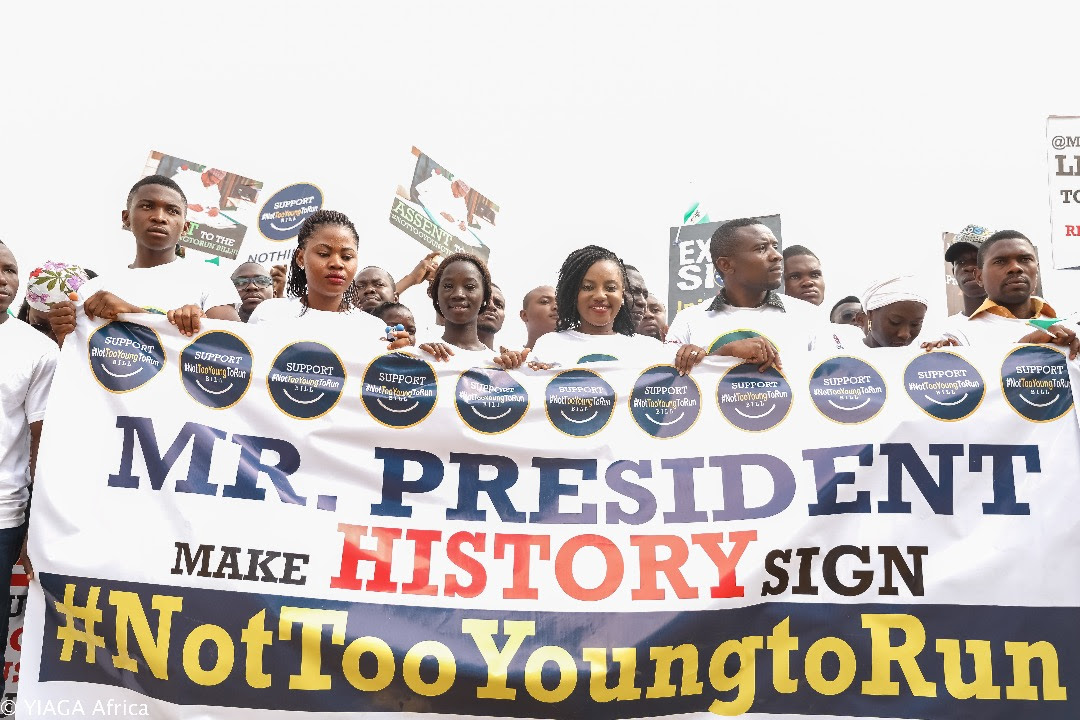
Africa’s expensive electoral politics as a huge barrier
One of the greatest barriers to achieving youth inclusion in democratic and governance processes in Africa is the huge cost of electoral politics on the continent; running a successful electioneering campaign requires huge financial war chest which has over the years continued to keep youths outside of executive and legislative positions across the continent. The cost of securing nomination forms in mainstream political parties and the many other prohibitive campaign-related costs has made it virtually impossible for young persons – no matter how suitably qualified and well-intentioned – to emerge victorious through the trickeries and shenanigans that define party politicking across the continent.
In other words, politics in Africa is essentially the exclusive preserve of moneybags politicians hence both party and secondary elections are in most cases up for the grab of the highest bidder, at the detriment of young people. Although there are attempts to limit the expenditures of political parties and individual candidates seeking political offices in some African countries such as Nigeria, election financing has remained a hugely expensive affair with sub-national elections for offices of governors in Nigeria gulping millions of dollars. It’s therefore needless to say in an atmosphere such as this, youths are automatically excluded.
“The cost of electoral politics is a challenge for youths in Nigeria and across the continent; that is one of the common challenges youths and women face. Most times, it is the responsibility of political parties to set the cost of nomination forms, within the ambit of the electoral law. Therefore, there must be stricter enforcement to ensure the provisions of the law are not being flouted. When one group has an advantage over another group and both are participating in the same elections then it puts the other group [youths] at disadvantage,” decried Faruk. “Interestingly, a group of youth in Uganda has recently gone to court to seek for reduction in the cost of party nomination forms. So, it is not just in Nigeria but across the continent that young people are coming together and organizing effectively around these challenges, to open up the space for their participation – and not just complaining about it.”
Young women even more marginalized
Whereas all youths can be said to be largely excluded from political governance processes in Africa, young women seem to suffer double, if not more exclusion across the political landscape. This is equally a consequence of a deeply ingrained culture of patriarchy in Africa’s political system, one driven by age-long sociocultural beliefs which are clearly against the provisions of both continental and global charters and treaties such as the Convention on the Elimination of all Forms of Discrimination Against Women (CEDAW), Beijing Declaration, the AU’s Solemn Declaration on Gender Equality in Africa (SDGEA) and also the African Charter on Democracy, Elections and Governance (ACDEG).
Mwikali believes deeply entrenched patriarchy within political parties and retrogressive norms work more against young women interested in participating in electoral politics in Africa. “We live in a very patriarchal society, where retrogressive traditions are against young women; even if young women vie for political office there is already a perception that the political space is meant for men – men are automatic beneficiaries of the political space. We therefore need to put in place measures that will ensure women are elected so they can talk on behalf of their womenfolk,” she said.
While speaking recently at a training of journalists on ACDEG in Addis Ababa, Ethiopia on the topic: “Women Participation in African Politics – Challenges and opportunities: Kenya Case Study,” Mary Wandia, policy advisor on civic participation at the global nonprofit Action Aid, identified pervasive patriarchy driven by religion, culture and traditional gender roles; impunity or rather lack of political will to implement laws; as well as gender-based discrimination by political parties, as some of the major obstacles to women’s participation in political processes in Africa.
Other obstacles she recognized included less or rather negative and stereotypical coverage by the media; limited financial resources to fund campaigns as well as gender-based violence and harassment of female candidates and systematic closing up of the civic space against women.
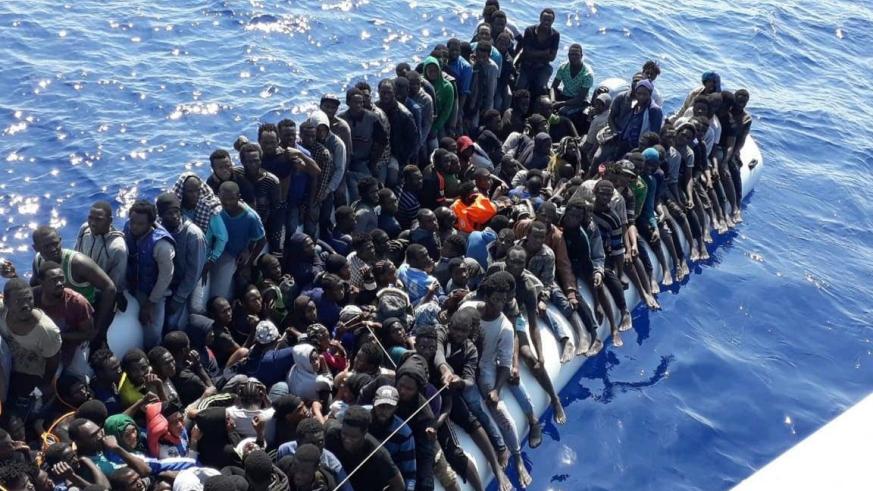
The need for robust policymakers-youth engagement platforms
Unfortunately, majority of Africa’s youth are not aware of the provisions of various continental and global policies and charters such as ACDEG, AYC as well as development frameworks such as the Sustainable Development Goals (SDGs) and African Union’s Agenda 2063. This is obviously a fallout of a huge communication gap existing between youths and policymakers who sign these laws and treaties on behalf of the youths but fail to either engage them about these policies nor make efforts to ensure they are implemented
Emmanuel Ametepey is the convener of the African Youth SDGs Summit, an annual continental gathering of African youths aimed at mobilizing and inspiring active youth participation in the implementation of the SDGs in Africa. He believes platforms such as the Youth SDGs Summit could help build African youth’s capacity to effectively engage policymakers around regional and global treaties and also foster effective youth engagement with policymakers.
“The African Youth SDGs Summit is an important multi-stakeholder platform for engaging youths, building their capacities to be able to go back to their countries and localize the skills they acquired. It will help create a movement of thinkers that will bring about ideas and innovation that will transform the continent. We need to engage youths at the levels of secondary schools and teacher training colleges,” he urged.
Ametepey however cautioned against the imposition of policies over African youths arguing that unlike the UN’s Agenda 2030 (SDGs) whose formulation process entailed robust and wide-ranging consultations, not very wide consultations went into the processes that gave birth to AU’s Agenda 2063 and ACDEG. This he thinks is responsible for the low-level of awareness about ACDEG and Agenda 2063 – the AU’s blueprint for transforming Africa into the global powerhouse of the future.
“Many people are not aware of the process that led to the development of ACDEG, which is something the AU must address; if people are involved in policy formulation, they feel they have a stake in it. Policy formulation should be all-inclusive by involving all voices across the region. There is need for youth professional development so that the youth can contribute to the realization of the AU’s mandate. The respective national youth parliaments are good platforms that could help achieve inclusion; however, the parliaments are facing challenges.
“They are deficient in their capacity to respond to the needs of youths because they have been politicized; currently, they are only doing the bidding of politicians and political parties in power. If depoliticized and strengthened, they can serve as important platforms for honing the leadership skills of young people to contribute to the development agenda. It will also be interesting to have a continental youth parliament that will serve as an incredible space for young people to come up with far-reaching solutions to some of the challenges we are facing on the continent,” proffered Ametepey .
Faruk also believes one of the major steps that need to be taken to popularize development frameworks such as ACDEG, SDGs and Agenda 2063 among Africa’s young people so as to achieve youth inclusion in democratic governance processes in Africa is effective youth mobilization through youth-based platforms and networks.
“One of the first steps is to mobilize youth platforms and networks to understand these agendas within their local contexts and how their implementation [or otherwise] affect their daily lives. Whether it is to do with health, education, environment or political participation, there is a way these agendas affect our lives, on a day-to-day basis. The more young people understand how they affect us the more they will be able to engage policymakers and demand for accountability.
“The media also has a very important role to play – not just new media but also traditional media. This is because there are different categories of young people, there are young people in rural areas whose primary source of information may not be the new media but radio and youths in urban areas who may be more inclined to receiving information through new media channels,” advised Faruk.
No doubt, there is a growing sense of political consciousness among Africa’s youth whose outcome was the toppling of governments in Egypt, Tunisia, Burkina Faso and more recently, Algeria and Sudan. There is currently a sense of restlessness among African youths which has continue to push many into the Sahara desert and the Mediterranean sea – on their way to Europe in search of greener pastures – while others into violent extremism and terrorism. The only solution to all forms of youth revolts is an all-inclusive, three-pronged strategy that will guarantee political, economic and social inclusion across the continent.
“Across the continent, young people are becoming more politically conscious and are rising to demand accountability and good governance from their leaders. The Arab Spring that swept through North Africa, and the large number of young people who protested in ousting Blaise Compaoré out of office in 2015 is clear demonstration of this growing consciousness among the youth of Africa. In Ghana, a growing frustration and youth unemployment played a key role in the defeat of John Mahama in the 2016 general elections; the first time a sitting president has lost an election in Ghana,” wrote Kweitsu.
“With this growing vigilance of young people, and the increasing growth of youth activism and youth civil society, African governments are left with no choice than invest in and create an enabling environment, be it economically, socially or politically for young people to realise their potentials. Governments have ignored young people for a long time but with the current growing level of youth consciousness, a government that ignores the youth does so at their own peril.”


